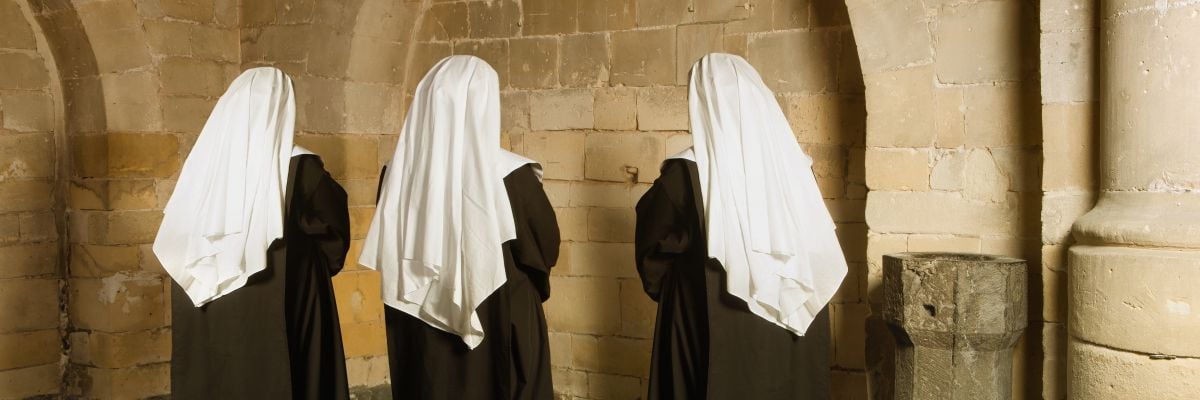
DAY 140
CHALLENGE
“Monks and nuns are unbiblical. We don’t see them in Scripture.”
DEFENSE
Yes, we do. In both testaments we see people who take vows to specially consecrate themselves to God.
In the Old Testament, we read about Nazirites. The Hebrew term nazir means “consecrated” or “separated,” and the Nazirites were those consecrated to God by a special vow (Num. 6:2). As a result, they were not to drink wine or use any grape products (6:3–4), they were not to cut their hair but let it grow long (6:5), and they were to abstain from contact with dead bodies, even of their own relatives (6:6–12). There were also ceremonies to be performed upon the completion of the vow, which included cutting the hair (6:13–21). Many Nazirites made temporary vows, but some had perpetual ones. These included Samson and Samuel, who were Nazirites from the womb (Judg. 13:5, 1 Sam. 1:11).
Like modern monks and nuns, Nazirites were vowed to live lives of special consecration to God. The parallel is so clear that in modern (twenty-first century) Hebrew, the word for monk is nazir and the word for nun is nazirah (the feminine form of nazir). Monks and nuns thus are the Christian equivalent of Jewish Nazirites.
In the New Testament, Paul appears to have taken temporary Nazirite vows more than once (Acts 18:18, 21:23–27).
He also describes a first-century order that took a perpetual vow of celibacy: “Let a widow be enrolled if she is not less than sixty years of age, having been the wife of one husband; and she must be well attested for her good deeds, as one who has brought up children, shown hospitality, washed the feet of the saints, relieved the afflicted, and devoted herself to doing good in every way. But refuse to enroll younger widows; for when they grow wanton against Christ they desire to marry, and so they incur condemnation for having violated their first pledge” (1 Tim. 5:9–12). Paul is concerned that younger widows will be tempted to re-marry and thus break the vow of celibacy the order required, bringing judgment upon themselves. He thus says younger widows should re-marry and have children rather than join the order (vv. 14–15).
Both testaments thus affirm the principle of some taking vows of special consecration to God.



